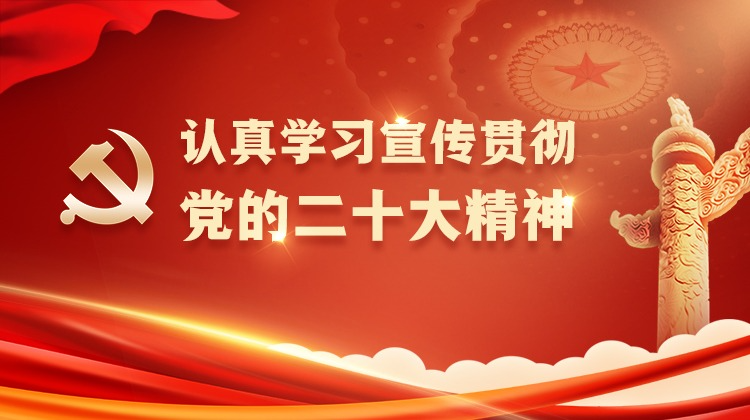
Connie Sweeris (4th L), American table tennis champion who went on the ice-breaking trip to China in 1971, her husband Dell Sweeris (3rd L), and participants from China and the United States take selfies during an event to commemorate the 52nd anniversary of Ping-Pong Diplomacy in Fremont, California, the United States, Dec. 15, 2023. (Photo by Li Jianguo/Xinhua)
Virginia Sung, CEO of USA Table Tennis, said "Ping-Pong Diplomacy" exemplifies the effectiveness of cultural and sports diplomacy as tools for breaking down barriers.
by Xinhua writers Julia Pierrepont III, Tan Jingjing
LOS ANGELES, Dec. 22 (Xinhua) -- 52 years on, Chinese and Americans are honoring the "Ping-Pong Diplomacy" legacy, and calling for joint efforts from both sides to cement China-U.S. friendship and exchanges.
Hundreds of athletes, VIPs, sports fans and officials from the United States and China gathered this week at an event in the Pacific Palms Resort in Los Angeles County, celebrating the 52nd anniversary of the history-making China-U.S. "Ping-Pong Diplomacy."
The banquet, following the U.S. Open Table Tennis championships and a China-U.S. friendship table tennis tournament earlier this month, was a highlight of a series of celebrations of "Ping-Pong Diplomacy" respectively held in Washington D.C., San Francisco, and Los Angeles.
"Ping-Pong Diplomacy" has helped lay the groundwork for establishing ties between China and the United States.
The era of "Ping-Pong Diplomacy" began when American table tennis player Glenn Cowan missed his team bus and was invited by Chinese player Zhuang Zedong to ride with him on the Chinese team bus during the 31st World Table Tennis Championship in Japan.
The meeting of the Chinese and U.S. table tennis players led to an invitation from the Chinese government for the U.S. team to visit China, and this tiny thaw helped break the ice between the Chinese and U.S. governments then.

Connie Sweeris, American table tennis champion who went on the ice-breaking trip to China in 1971, delivers a speech during an event held by the Chinese Embassy in the United States to commemorate the 52nd anniversary of Ping-Pong Diplomacy in Washington, D.C., the United States, Dec. 13, 2023. (Xinhua/Liu Jie)
"That seemingly small gesture had a huge symbolic significance," Gene Sykes, chairman of the U.S. Olympic and Paralympic Committee, told Xinhua. "The sport of Ping-Pong paved the way for the normalization of diplomatic relations between China and the United States."
"The impact of this event went far beyond the realm of sports. It was the opening for a wide range of collaborations which spanned the scientific, cultural, artistic and educational domains," he noted.
"Today, 52 years later, Sino-U.S. relationship has become a key factor in global stability and prosperity," affirmed Chinese Consul General in Los Angeles Guo Shaochun.
"At this moment, we must cherish the hard-won relationship between the two countries and work together to promote our relations on the basis of mutual respect, peaceful coexistence, and win-win cooperation," Guo said.
"It just goes to show how one small act of sportsmanship from one athlete to another can change the history of the world," Barney Reed, a U.S. Olympic table tennis player and head coach of Google's Ping-Pong team, told Xinhua.
U.S. Triple Crown Table Tennis Champion Connie Sweeris, a member of the historic 1971 U.S. table tennis team that played in China, told Xinhua that "it was really neat to be able to train with the Chinese and share our knowledge of table tennis. It was especially good for the Americans because the Chinese players taught us some great techniques."
"Ping-Pong Diplomacy is a really important part of U.S.-China relations," Dell Sweeris, Connie's husband and fellow U.S. Open Table tennis champion, told Xinhua. "Governments can learn a lot from good sportsmanship."

Connie Sweeris (1st R) and her husband Dell Sweeris (2nd R), a U.S. couple who once experienced the ice-breaking "Ping-Pong Diplomacy" in the 1970s as table tennis players, play an exhibition match with USA Table Tennis's CEO Virginia Sung (1st L) and then Chinese Consul General in Los Angeles Zhang Ping (2nd L) in Los Angeles, the United States, March 20, 2022. (Xinhua)
Many other attendees felt the two countries have a lot to learn from "Ping-Pong Diplomacy" in today's challenging times.
"When you have countries with different political philosophies, there is common ground in the world of sport," John Naber, member of the U.S. Olympic Committee and former Olympic swimmer, told Xinhua.
Virginia Sung, CEO of USA Table Tennis, said "Ping-Pong Diplomacy" exemplifies the effectiveness of cultural and sports diplomacy as tools for breaking down barriers.
"The legacy of 'Ping-Pong Diplomacy' continues to inspire us to look beyond our differences and find common ground in our shared human experiences ... and fostering people-to-people connections that form the basis for improved diplomatic relations," said Sung.
"We have the shared responsibility to carry forward the spirit of 'Ping Pong-Diplomacy' and enhance the well-being of our two peoples by mutually beneficial cooperation," said Consul General Guo.







 新华报业网
新华报业网














 Android版
Android版
 iPhone版
iPhone版




